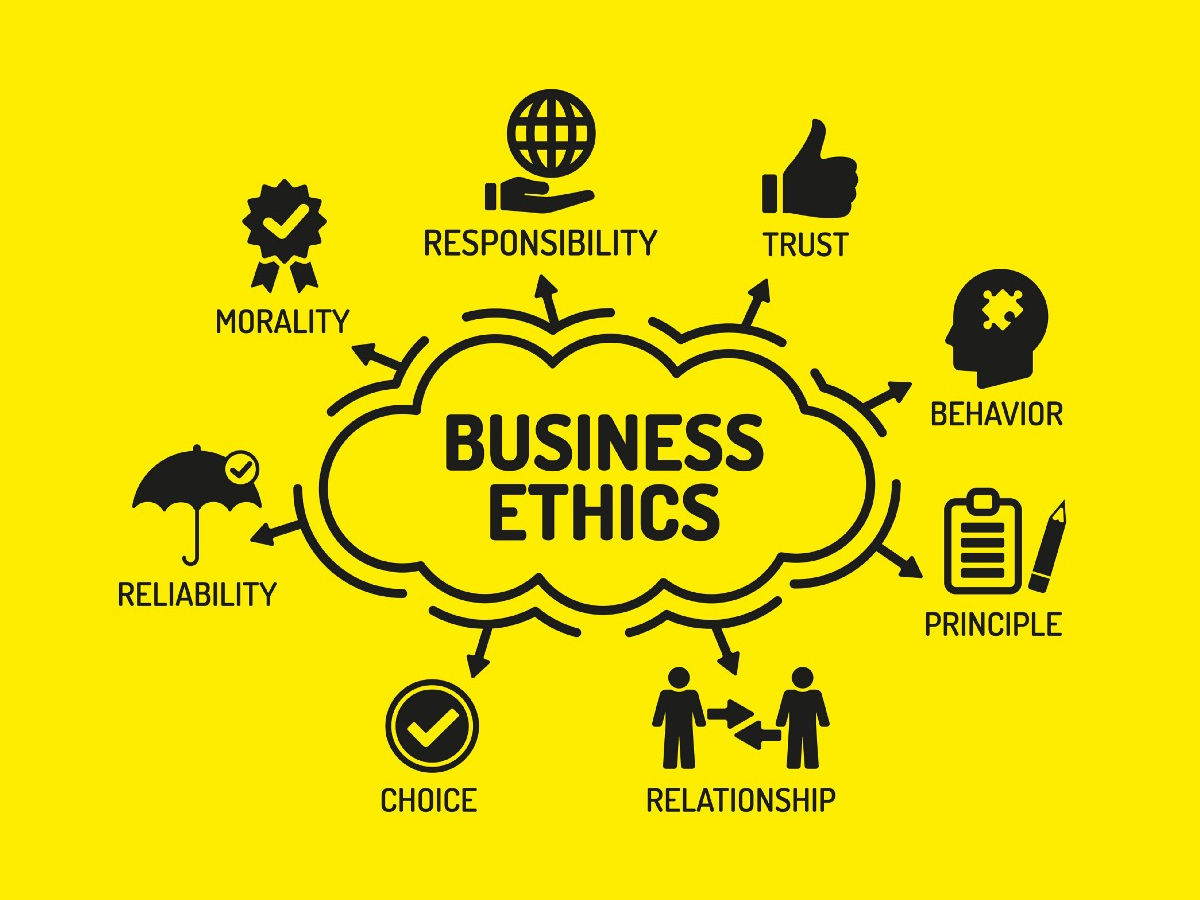The term ethics derives from the word ‘ethos’ in Greek, meaning character. Ethics is a branch of philosophy that discusses human character and action. It is the discipline of ‘what is good and evil,’. Ethics is the embodiment of moral principles and defines what ‘right’ and what ‘wrong’ is and what ‘should be’ in human behavior.
Ethics is a “consideration and application of structures, concepts, and values for the development of moral knowledge.” Ethics are often widely referred to as “moral, decent, right, equal and truthful.” “The values or concepts of human behavior are referred to as ethical norms.” Therefore, ethics means good character and morality and relates to the commonly accepted human character and behavior regarded by contemporary society as desirable.
The word ‘Business Ethics’ refers to the set of moral standards and conduct laws that are applied to business. As a social institution, a business must not be done in a manner that is harmful to the interests of society and the business sector itself. For its members, any career or community frames those do’s and don’t. The members are given a norm that they are expected to work on. The predominant economic and social conditions are affected by these principles. To suit the changing conditions, the codes of conduct are regularly revised.
Importance

Business ethics help guarantee the company a positive reputation. Being part of an organization with a strong reputation not only feels amazing, but it’s great for business. More people would want to do business with you when you have a reputation for being consistently ethical about how you source and create goods, and handle workers, consumers, and the environment. Also, the ethics of social media are vital to your image.
Companies who follow good business ethics face a lower chance of fines and other legal issues. Yeah, the rules and regulations are complex, but just by doing what is morally right, a lot of trouble can be avoided. If business decisions are taken with that in mind, the stress of having to protect your business against litigation and fines can be avoided.
Overall, if managers and workers make reasonable, ethical choices at all levels of an organization, it’s good for the company. All these variables above help the business expand, have greater earnings, and a strong bottom line.
For its own good, the company needs to stay ethical. Only in the very short run can unethical actions and decisions yield results. Business is necessary to conduct itself ethically and to perform its operations on ethical lines for the long-term existence and sustainable profitability of the company. Doing so would provide the organization with a solid base for its continued and sustainable existence.
It has been seen over and over again around the world that it is only ethical organizations that have managed to thrive and expand, while immoral ones have shown results only as a flash in the pan, growing rapidly and dying and forgotten even more quickly.
Business needs to act as the nation’s responsible corporate citizens. It is the organ of society that produces the country’s income. A business may therefore play a very important role, if it wishes to do so, in the modernization and development of the country. But this will require it to emerge first from its narrow mentality and even narrower aims and motives.
“Profit is a dirty word,” said Jawaharlal Nehru, referring to public sector firms in the 1950s. And private corporations that make profits are regarded by the public with disdain. In the eyes of the upright moral people of that age, their dealings were suspicious. This was largely because of the warped perception that society had of businesses then.
Different Perspective

A business that produces losses is a liability and a burden on society because it can not fulfill its obligations to society, it can not fulfill its welfare obligation to its workers, it can not even pay its employees for their efforts, it can not produce profits for its shareholders, it can not sufficiently satisfy customer demands and can not do all those things that a good conscientious person can do. Profit is thus seen today as an indicator of the company’s performance and its justification for continued life, growth, and diversification.
It’s basically unethical, viewed from all angles, not to make a profit. For a business, causing losses is unethical.
Thus, instead of profit being inconsistent with ethics, business ethics states that a business’s primary duty is to stay productive and generate income for shareholders and the community. Rather, not making a profit is unethical.
Therefore, every company’s first and foremost ethical responsibility is to make a profit for its shareholders, for its workers, for its creditors, and, most importantly, for itself, so that it can meet its social obligations and welfare obligations.

























